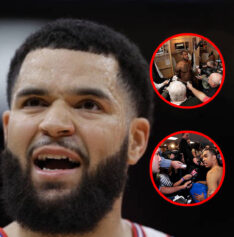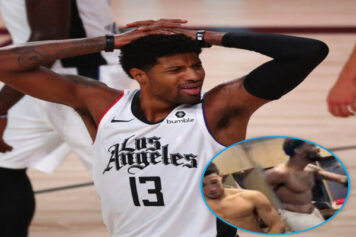If given enough time, a person will always tell on themselves.
And despite addressing racial and social issues in the past, earlier this week, Golden State Warriors head coach Steve Kerr crossed a line when he labeled Anthony Davis’ recruitment as “bad for the league.”
Stay out of grown folks’ business.
“I’m talking more about the Anthony Davis situation,” said Kerr on The Warriors Insider Podcast. “Where a guy is perfectly healthy and has a couple of years left on his deal and says, ‘I want to leave.’ That’s a real problem that the league has to address and that the players have to be careful with.”
“When you sign on that dotted line, you owe your effort and your play to that team, to that city, to the fans. And then (once the contract runs out) it’s completely your right to leave as a free agent. But if you sign the contract, then you should be bound to that contract.”
“If you come to an agreement with the team that, hey, it’s probably best for us to part ways, that’s one thing. But the Davis stuff was really kind of groundbreaking – and hopefully not a trend, because it’s bad for the league.”
Kerr must have forgotten that teams cut players all the time. And he didn’t discuss that how due to the way contracts are set up, a player can spend years with the franchise that drafted them before they reach true free agency, allowing them to finally decide what’s best for them.
He also ignored the fact that the only reason Davis’ drama became public is due to former Pelicans GM Dell Demps dropping the ball, forcing Rich Paul to let the world know that his client wanted out.
Kerr should be more concerned about his team, given that he said it was “a complete gut punch” when he found out that management recently traded away Andre Iguodala.
You can’t be sad when you lose a player, but then turn around and be annoyed when another takes matters into their own hands.
The hypocrisy is hilarious, but it’s also just the tip of the iceberg.
There were multiple reports this week that shed light on how the league is having issues coping with the aftermath of Kawhi Leonard and Paul George teaming up with the Clippers. The situation was labeled as “a watershed moment,” as superstars now have the leverage to build the teams they want to play on. There was even a recent owners meeting that was labeled as tense, due to how free agency played out.
It was a wakeup call to the league, as owners and GMs are starting to realize just how powerless they can be.
“If they didn’t want to wait for me, they didn’t have to,” Leonard recently told Yahoo Sports about the teams that were recruiting him during free agency. “They had a big opportunity to sign me. [The Lakers] were close, but I ended up on the other side.”
“I didn’t lead anyone on,” Leonard continued. “I took my time in free agency, as I should, to make sure I made the best decision for myself and my family. I feel like some of the media coverage over it made it feel that way, with people saying I’m signing with Toronto 99% or I’m going to the Lakers 99%. I don’t ever want to have that bad karma come back on me trying to make the Lakers miss out on players they should have gotten or vice-versa with the Raptors.”
This transfer of power isn’t just happening in the NBA, either. And while it isn’t as prominent in the NFL, you’re starting to see more players pull away from the status quo. New Orleans Saints wide receiver Michael Thomas and Los Angeles Chargers running back Melvin Gordon are currently holding out for training camp in a power play for better contracts. And just last season, Le’Veon Bell became the face of self-preservation within the new athlete in the NFL when he sat out an entire season in a standoff with the Pittsburgh Steelers.
To be young, black, and bold.
It’s a concoction that older white owners and general managers can’t handle. And for the first time in the history of sports, black athletes have become invaluable assets that are creating the marketing, instead of setting it.
It’s a refreshing reminder that progress waits for no one.



